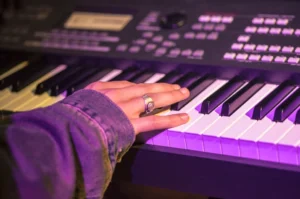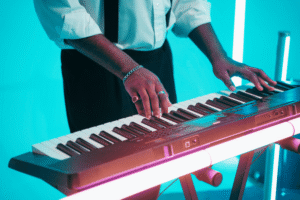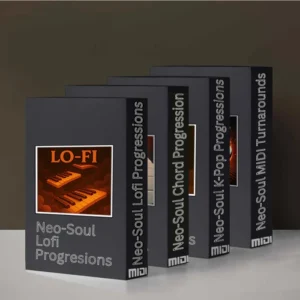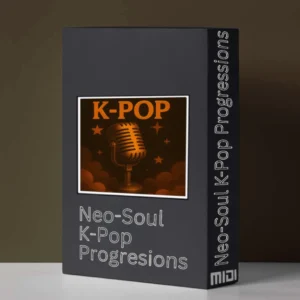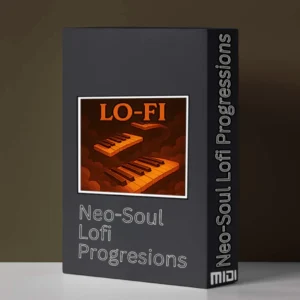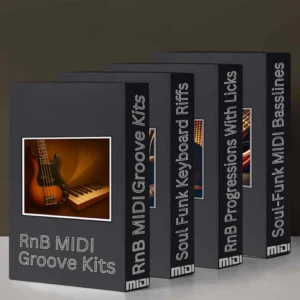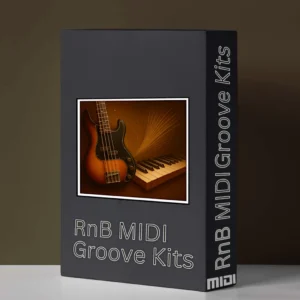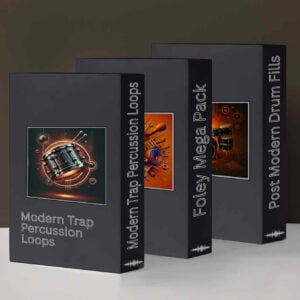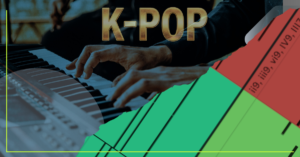
Send Us A Message
>
The Rise of AI in Music Creation: Threat or Opportunity?
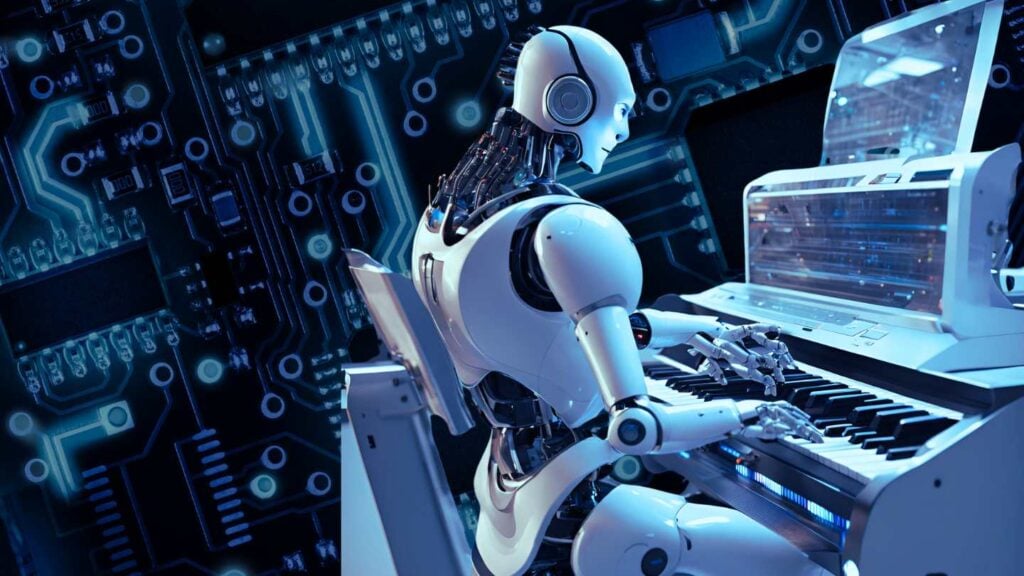

Matt Crowe
As we navigate through the digital age, it’s fascinating to see how artificial intelligence (AI) is weaving its way into nearly every facet of our lives. From smart assistants in our homes to sophisticated systems that drive businesses, AI’s footprint is expanding—and the realm of music creation is no exception. As someone who merges the serene worlds of meditation and music production, I’ve watched this evolution with both excitement and a hint of caution.
The Advent of AI in Music
Rewind a few decades, and the idea of machines composing music might have seemed like a chapter from a sci-fi novel. Yet, here we are, with AI not just taking part in, but often enhancing the music production process. AI in music isn’t just about composing songs; it’s about the array of tools that assist in sound design, mixing, mastering, and even live performances.
Opportunities Presented by AI
Enhanced Creativity: One of the most exhilarating prospects of AI in music is its potential to push creative boundaries. Imagine leveraging AI to generate a landscape of sounds that you, as a human, might never have conceived. For those of us crafting sounds for meditation and relaxation, these new textures can open doors to deeper, more immersive experiences for our listeners.
Additionally, AI can serve as a creative partner, sparking innovation by merging human intuition with its vast data-processing capabilities. It can suggest modifications to melodies or rhythms, opening up new avenues for exploration and refinement in music production, ultimately enhancing the creative process with its quick and diverse iterative capabilities.
Efficiency and Accessibility: AI can handle some of the more tedious aspects of music production, like tweaking EQs or setting compressors, freeing up more time for creative exploration. Moreover, it democratizes music production. Tools that simplify composition and production mean that anyone with a computer and inspiration can craft music, breaking down barriers that once required formal training or expensive equipment.
New Soundscapes: Specifically, in the realms of meditation and therapeutic music, AI can help create soundscapes that support mental health and well-being. By tailoring these sounds, we can create soundscapes that induce relaxation, aid sleep, or help focus, making the wellness benefits of music more accessible to everyone.
AI’s ability to analyze and adapt to individual listener responses can personalize these soundscapes even further. By understanding a listener’s physiological or psychological state through data, AI can change music in real-time to better suit their needs, enhancing the effectiveness of music as a therapeutic tool. Not only does this level of customization deepen the listener’s experience, but it also pushes the boundaries of how music can be used as a form of therapy and relaxation.
Challenges and Threats
Authenticity Concerns: A hotly debated issue is whether music created by AI can truly resonate on an emotional level like that composed by humans. As we tread these new waters, it’s essential to ask ourselves what we value in the music we listen to and create.
This debate taps into the very essence of what it means to be human: our capacity for emotional depth and connection. While AI can mimic patterns and styles, the question remains whether it can truly capture the human spirit that imbues music with meaning and resonance. This question challenges us to refine our understanding of creativity and emotional expression, engaging us to consider how we can recognize or even replicate these qualities in AI-generated music. Ultimately, it prompts a deeper appreciation of the unique contributions that human experiences bring to the art of music-making.
Economic Impact: There’s genuine concern about AI replacing jobs in the music industry. As machines become capable of tasks traditionally performed by humans, from composing to performing, the industry must adapt, but not at the cost of human ingenuity and employment.
Ethical Considerations: Who owns a piece of music that an AI composes? How do we handle copyright in such cases? These are not just technical but profound ethical questions that need addressing as AI becomes a staple in creative industries.
Addressing these ethical considerations requires a framework that recognizes both the creative input of the AI developers and the users who employ these tools in music production. As AI continues to evolve, the lines of authorship and ownership can blur, prompting a need for fair legal standards that protect the interests of all parties involved. This involves adapting copyright laws to accommodate the unique aspects of AI-generated content, ensuring that creators receive rewards for their innovation while promoting an environment that encourages artistic growth and responsible use of technology in the arts.
Balancing Technology and Tradition
While AI presents exciting opportunities, it’s vital to balance these advancements with the essence of traditional music-making. Human touch, expression, and emotion are irreplaceable in music. I view AI as a complement to human creativity, not a replacement. By understanding and setting boundaries on AI’s role in our creative processes, we can harness its benefits while preserving the soul of our music.
Navigating this balance requires a thoughtful approach, where musicians and producers consciously integrate AI tools without overshadowing the human elements that define musical artistry. It’s about creating a symbiotic relationship where technology amplifies creativity rather than diluting it. By fostering a collaborative environment where AI assists rather than dictates, we ensure that the music not only retains its emotional impact but also gains new dimensions brought forth by technological innovation. This partnership can lead to a richer, more diverse musical landscape that honors tradition while embracing the future.
Conclusion
As we look ahead, the intersection of AI and music holds both promising opportunities and significant challenges. For us in the music production field—especially those of us using music as a tool for wellness—it’s crucial to approach AI with both openness and mindfulness. Let’s navigate this new era not with fear, but with curiosity and a readiness to adapt, ensuring that we keep the human experience at the heart of music creation. Whether AI becomes a threat or an opportunity is largely up to how we choose to use it.
More Posts
-
Sale!
Neo-Soul MIDI Chords Bundle
Rated 5.00 out of 5$148.00Original price was: $148.00.$86.00Current price is: $86.00. Add to cart -
Sale!
Neo-Soul K-Pop Progressions
$56.00Original price was: $56.00.$47.00Current price is: $47.00. Add to cart -
Sale!
Neo-Soul Lo-Fi Progressions
$42.00Original price was: $42.00.$36.00Current price is: $36.00. Add to cart -
Sale!
Soulful Groove MIDI Bundle
Rated 5.00 out of 5$134.00Original price was: $134.00.$86.00Current price is: $86.00. Add to cart -
Sale!
RnB MIDI Groove Kits
$57.00Original price was: $57.00.$43.00Current price is: $43.00. Add to cart -
Sale!
Modern Percussion Mega Bundle
Rated 5.00 out of 5$136.00Original price was: $136.00.$95.00Current price is: $95.00. Add to cart

